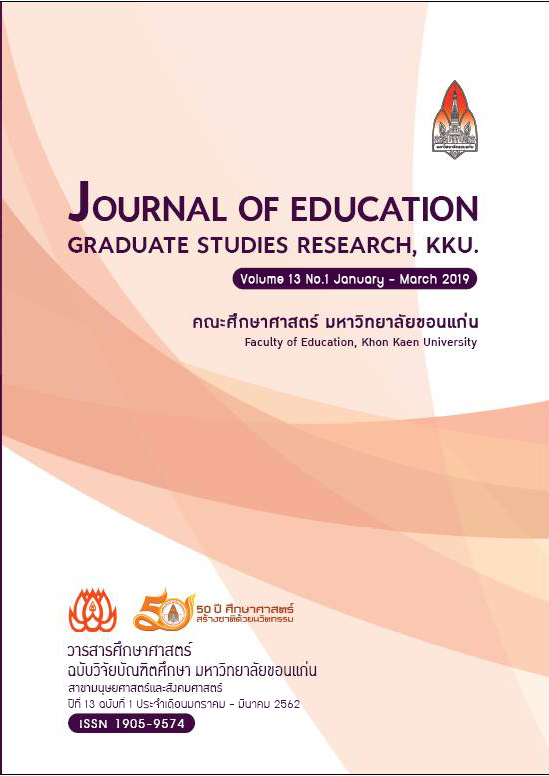The Approach of Scientific Learning to the Outcomes of Sciences Learning to the First Class of Visual Impairment Students In SDLB-A YPAB Tegalsari Surabaya
Main Article Content
Abstract
The visual impairment had impact to academic ability of students with visual impairment. one of them to science, It caused the result of students learning less satisfied. To solve the problem required innovations in learning, one of them by applying the approach step of learning scientific to teaching-learning process. The purpose of this research was to know whether there or not influence of learning scientific approach toward learning result of science to the first class of students with visual impairment in SDLB-A YPAB Tegalsari Surabaya.
The method used in this research was quantitative and the type of research was sign test with “one group pre-test – post-test design”. The data collection method used oral test and observation, the data analysis technique used statistic non parametric with willcoxon formula.
The research result indicated that the average value result of pretest was 30 and post- test was 83,33. The result of data analysis indicated Zh value (2,20) and Z table 5% (1,96) so the interpretation was Zh>Zt. So it could be concluded that Ho was accepted it meant that there was influence of learning scientific approach toward learning science result to the first class of students with visual impairment in SDLB-A YPAB Tegalsari Surabaya
Article Details
References
Arikunto. (2006). Prosedur Penelitian Suatu Pendekatan Praktik. Jakarta: PT Asdi Mahasatya.
Daryanto. (2014). Pendekatan Pembelajaran Saintifikb Kurikulum 2013. Yogyakarta: Gava Media.
Direktorat Pembinaan Sekolah Luar Biasa. (2006). Standar Kompetensi dan Kompetensi Dasar. Jakarta: Departemen Pendidikan Nasional.
Kosasih.E. (2012). Cara Bijak Memahami Anak Berkebutuhan Khusus. Bandung: Yrama Widya.
Machin. (2014). "Implementasi Pendekatan Saintifik, Penanaman Karakter dan Konservasi pada Pembelajaran Materi Pertumbuhan". Jurnal Pendidikan IPA Indonesia, 3(1), 28-35.
Marjan, Johari. 2014. "Pengaruh Pembelajaran Pendekatan Saintifik terhadap Hasil Belajar Biologi dan Keterampilan Proses Sains Siswa MA Mu'allimat NW Pancor Selong Kabupaten Lombok Timur Nusa Tenggara Barat". e-Journal Program Pascasarjan Universitas Pendidikan Ganesa, 4.
Purwanto. (2011). Evaluasi Hasil Belajar. Yogyakarta: Pustaka Pelajar. Rahardja dkk. 2010. Pengantar Pendidikan Luar Biasa.
Surabaya: UNESA. Sani. (2014). Pembelajaran Saintifik untuk Implementasi Kurikulum 2013. Jakarta: Bumi Aksara.
Sintawati. (2014). Implementasi Pendekatan Saintifik Model Discovery Learning dalam Pembelajaran Pendidikan Agama Islam di SMA Negeri I Bantul. Skripsi diterbitkan digilib (online), (http://digilib.uin-suka.ac.id/13660/, diunduh 13 Januari 2015).
Sriyanto. (2007). Kondisi Lingkungan Hidup di Jawa Tengah dan Prospek Pembangunan ke Depan
(Online),http://download.portalgaruda.org/article.php?artic le=136589&val=5671, diakses tanggal 15 Januari 2015.
Somantri. (2007). Psikologi Anak Luar Biasa. Bandung :Refika Aditama. Sudjana. 2011. Penilaian Hasil Belajar Proses Belajar Mengajar. Bandung: PT.Remaja Rosdakarya.
Sugiyono. (2013). Metode Penelitian Pendidikan Pendekatan Kuantitatif, Kualitatif, dan R&D. Bandung: ALFABETA.
Sugiyono. (2013). Statistik untuk Penelitian. Bandung: Alfabeta.
Tim Penyusun. (2014). Pedoman Penulisan Skripsi. Universitas Negeri Surabaya.
Wahyuno, E. (2013). Orientasi dan Mobilitas. Universitas Negeri Malang.

